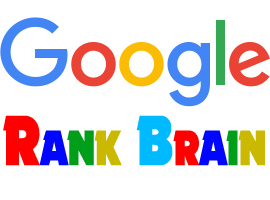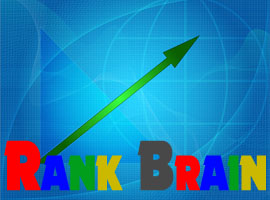Rank Brain is one of Google’s top three ranking factors, meaning that it’s one of the single most important keys in determining which web pages top Google for any given keyword search. After Rank Brain launched early in 2015, more news has been circulating about generally what it is and how it affects Google’s rankings, but only recently did Google come right out and explicitly identify it as one of the big three, causing webmasters and SEOers to scramble to learn anything and everything about how it’s affecting their ranking, so let me give you everything there is to know about it at the moment.
What is Google’s Rank Brain
Rank Brain is essentially the name for a learning and artificial intelligence based program which plays a substantial role in better sorting and making connections in Google’s search results, particularly in new search results.
Believe it or not, there are still hundreds of millions of queries which Google receives EACH DAY which it has never seen before (so yes, you can feel special to know that you likely truly are the first and only person to ever search for that precise random query over breakfast this morning… hooray for individuality!).
Much of Google’s search is still curated by people who sift through billions of search queries a day either actively or through premade special connective lists which are able to pick up on synonyms to deliver instant relevant results on the most arbitrary of searches.
Rank Brain takes the idea of these synonym and relevance based lists to the next level to where it can actually make its own decisions about which content is most relevant for any given search term even if its never seen the query before.
The idea and intention behind Rank Brain is that it can draw its own conclusions about what content is relevant for a given search term by making its own interpretation regarding what the person who is searching for’s intentions are when they use Google.
The program pulls from Google’s own existing massive database of search queries/results to infer meaning and intent from old searches and apply them to new searches, working backwards through synonyms and context to identify what exactly a user was looking for and to return relevant results accordingly.
How Does Rank Brain Affect Google Rankings?
Note that Rank Brain doesn’t work to deliver live search result. So if you search for something using the most roundabout way and least explicit diction to form your query, something which Google is guaranteed to have never encountered before, then it won’t be Rank Brain that’s giving you that result (and odds are you may not get an especially relevant result for your search, at least in terms of your intentions).
That new query will, however, be entered into Google’s database and added to Rank Brain’s workload of queries which are yet to sort out. Therefore it’s possible that the next time you enter that same search term in the future, you’ll get vastly different results.
So while Rank Brain doesn’t deliver live results, Google’s search department do give it the chance to take a crack at it offline to attempt to correctly interpret precisely what it was which you the user were intending/looking for with your search. Once the results are returned, Google’s search department sifts through the results to determine whether or not Rank Brain is on the right path with any given sector of search query, or in other words a sizable group of similar search results.
If the however many millions or billions of results are deemed effective and relevant, that contribution from Rank Brain is then rolled out as part of the next Google search update and the program gets to work on another batch of queries. With each “update”, Rank Brain has essentially just tweaked and ultimately improved itself and its ability to comprehend search terms with a hand from Google.
These updates are obviously what affect search results and potentially your website’s spot in them.
The good thing about all of this is that common sense tells us that Rank Brain can only have a helpful impact on our rankings. It’s essentially replacing irrelevant results for search terms with relevant ones, meaning it’s working hand in hand with one of the other big three ranking factors, “content”.
And if your website was displaced by more relevant results, then it wasn’t even a loss for you because your website wasn’t relevant to the initial search, so you were receiving little to no targeted traffic from Google to begin with.
If your website’s position and visibility improves thanks to Rank Brain, then it’s only because you have created good content which Rank Brain detected as being relevant to the search query, equating to more targeted traffic for you.
Final Thoughts on Rank Brain
Rank Brain is just another step in the right direction for a win-win relationship between Google and the (quality) websites hoping to rank well in it. Google is, as always, committed to returning only the most targeted content to its users, which benefits the webmaster equally because this again equates to more targeted traffic.
While there are still hundreds of millions of previously never before seen queries being entered into Google each day, that number drops lower each year so being able to stump Google and deliver untargeted results will continue to drop with it.
Obviously Rank Brain will continue to learn and become better at sorting results for any given search term to provide its users with the most targeted SERPs, and it will be interesting to see how much more targeted the traffic becomes for webmasters who take the time to create useful and keyword rich/relevant content for their audiences rather than attempting to appeal to Google itself through methods designed to game the system in order to secure better results.
Google has spoken, and the emphasis on an ever growing in intelligence Rank Brain only reinforces this: if the content isn’t there, neither will be the rankings.
